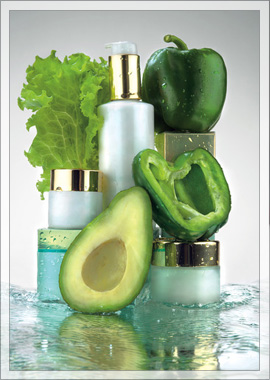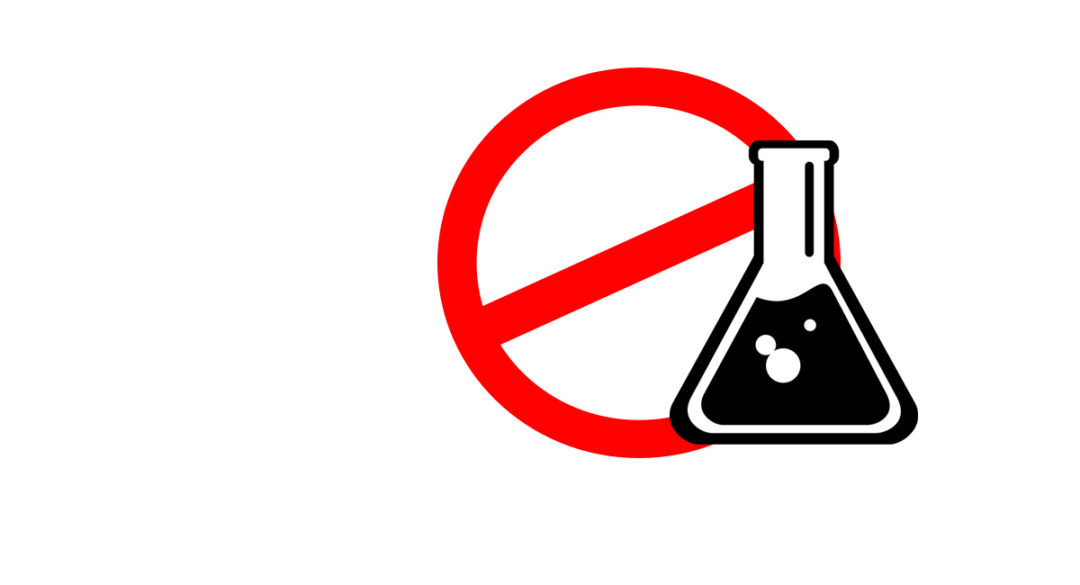A while ago I wrote about why I prefer to use natural skin products and in another article wrote about some of my favourite brands. (Check out under Skincare in Articles). So what are these nasty chemicals to avoid in skin products and is it really necessary to do so? Firstly let’s just clarify that we are talking about synthetic chemicals here because, of course, even natural ingredients are in fact chemicals.
 Skin is highly permeable, allowing what you apply to it to enter your bloodstream. It stands to reason therefore that you shouldn’t put anything on your skin that you wouldn’t be prepared to eat! However, I did spend some hours with a cosmetic scientist who explained a few surprising facts.( I drove all the way to Wales and back for this! ) He uses natural products when he can but categorically states that good quality synthetic or high grade chemicals properly used are completely safe and acceptable. He said the majority of scientists in SCS (Society of Cosmetic Scientists) would agree with this, but acknowledged that there are some purists who would not agree. The thing that surprised me most is that he said the price of a product would not ensure that a good quality chemical was used. He said some of the cheapest products actually have high grade chemicals and inexplicably some of the most expensive products on the market have poor quality chemicals! This of course makes no sense whatsoever, not even to him! Unfortunately, he said, there is no way of actually knowing what quality chemicals have been used in which products. He absolutely agreed however that poor quality chemicals improperly used were best avoided. So where does that leave us? It seems to me that if it’s impossible to ascertain if a
Skin is highly permeable, allowing what you apply to it to enter your bloodstream. It stands to reason therefore that you shouldn’t put anything on your skin that you wouldn’t be prepared to eat! However, I did spend some hours with a cosmetic scientist who explained a few surprising facts.( I drove all the way to Wales and back for this! ) He uses natural products when he can but categorically states that good quality synthetic or high grade chemicals properly used are completely safe and acceptable. He said the majority of scientists in SCS (Society of Cosmetic Scientists) would agree with this, but acknowledged that there are some purists who would not agree. The thing that surprised me most is that he said the price of a product would not ensure that a good quality chemical was used. He said some of the cheapest products actually have high grade chemicals and inexplicably some of the most expensive products on the market have poor quality chemicals! This of course makes no sense whatsoever, not even to him! Unfortunately, he said, there is no way of actually knowing what quality chemicals have been used in which products. He absolutely agreed however that poor quality chemicals improperly used were best avoided. So where does that leave us? It seems to me that if it’s impossible to ascertain if a  synthetic chemical is of good quality and been properly used in any product, it’s best to stick with natural products. However, I do find it interesting that a high grade chemical is actually safer (according to my scientist completely safe) to use than I had supposed.
synthetic chemical is of good quality and been properly used in any product, it’s best to stick with natural products. However, I do find it interesting that a high grade chemical is actually safer (according to my scientist completely safe) to use than I had supposed.
I don’t know about you, but when I look at the list of ingredients on a product, the names are completely baffling and how are you supposed to know what is good and what is to be avoided?
So here is the low down of the most controversial nasty chemicals:
Parabens
A low cost synthetic preservative – toxic and inflammatory, it’s a suspected carcinogen and mimics estrogen which can stimulate breast cancer. Many studies have been funded by big cosmetic brands to try and prove that prolonged usage is safe. None have been successful in doing this.
Mineral Oil
Created from distilling gasoline – coal tar is a common one but a particularly damaging one is 1,4-dioxane which is in many baby products.
Parafin & Petroleum
Found in shampoos and anything that creates suds. Often not listed, it is a suspected carcinogen. Coats the skin like plastic, clogging pores and creating a build up of toxins. Irritating and ageing.
Sodium Laurel/Laureth Sulfate
Combined with other chemicals may become a “nitrosamine” (a potent carcinogen) and probably the most dangerous ingredient used in skin products. Breaks down the skin’s moisture barrier leading to dry skin and ageing. Irritates cell membranes and destroys protein causing skin and collagen damage.
Propylene
Common cosmetic moisturiser and carrier for fragrance oils. May cause dermatitis and skin irritation and inhibit cell growth.
Glycol
Linked to kidney and liver problems.
Acrylamide
Found in many facial creams. linked to mammary tumours.
Ureas
Releases formaldehyde. Toxic and inflammatory.
Glycol
Makes it easier for other chemicals to cross the skin barrier into the body and pollutants found in various PEG compounds can include ethylene oxide, used to manufacture mustard gas, as well as other toxins. Carcinogenic, toxic, inflammatory and ageing.
Phthalates
A truly toxic skin care ingredient. Can appear as DBP, DEP or butyl ester. Helps cream absorb into skin. A probable carcinogen. L’Oreal has discontinued it in Europe due to severe allergic reaction.
There are many others like Triclosan and most of the alcohols and synthetic fragrances that are toxic, inflammatory, carcinogenic and ageing.
There are now so many natural and/or organic products on the market that avoiding harmful chemicals is so much easier than it used to be. As my chemist said, it’s all about quality. And a little bit of moisture on the skin before applying that serum, moisturiser or oil. That will lock the moisture into your skin hydrating and plumping it out. He also said that!

Comments 1
This is certainly an eye opener! Could you let me know what skin care products there are available without the nasties.
Kind regards
Denise